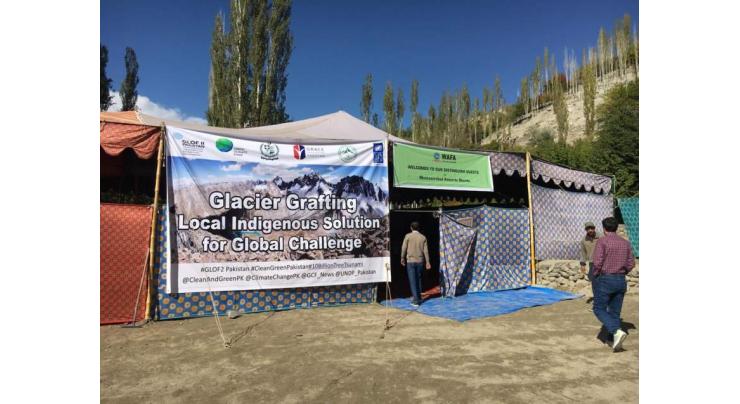GILGIT: The Provincial Project Steering Committee (PPSC) meeting of GLOF-II Gilgit-Baltistan (GB) was convened.
It was chaired by the Chief Secretary GB Abrar Ahmed Mirza and was attended by the Additional Chief Secretary (Dev) Capt. (Retd) Mushtaq Ahmed, Secretary Finance Aziz Ahmed Jamali, Secretary Home Capt. (Retd) Syed Ali Asghar, Secretary Forest Zafar Waqar Taj, Secretary Agriculture Tariq Hussain, Secretary Water Management and Irrigation Riaz Ahmed, Director General GBDMA Safdar Khan, Deputy Chief Planning and Development Department Ali Jabbar, and representatives from various implementing partner organizations.
During the meeting, UNDP Provincial Coordinator Mr Abdul Basit provided a comprehensive overview of the progress achieved by the GLOF-II project in the year 2023 and presented the proposed work plan, detailing activities and costs earmarked for the year 2024.
The forum engaged in a thorough deliberation on the achievements thus far and discussed future strategies. Chief Secretary GB, Abrar Ahmed Mirza, commended the GLOF-II project for effectively addressing climate change issues and their impact on the lives, livelihoods, and natural environment of the region.
He specifically praised the installation of early warning systems (EWS) in vulnerable valleys, emphasizing their crucial role in facilitating proactive measures during disasters and emergencies.
The CS directed the integration of GLOF-II activities with government departments to ensure synergy and prevent duplication. He highlighted the importance of collaborative efforts to maximize the positive impact of the project.
The Additional Chief Secretary (Dev) Capt. (Retd) Mushtaq Ahmed expressed appreciation for the physical work accomplished under the project, including the installation of EWS, the construction of small-scale flood mitigation structures, and the establishment of Community-Based Disaster Risk Management Centers (CBDRMC) in targeted valleys, as he inspected some of these interventions.
The forum collectively expressed satisfaction with the overall progress of the GLOF-II project and pledged support for the proposed activities outlined for the new year.
Early warning and radar systems under the Glacial Lake Outburst Flood (GLOF) Project are being installed in over 200 valleys across Gilgit-Baltistan, Chief Secretary Mohyuddin Ahmed Wani said. The project will have safe havens, well-equipped high-tech schools, dispensaries and community centres.
An Italian team recently trained the individuals selected for handling the early warning system. The personnel were trained in operating components like advanced automatic weather stations, rain gauges, snow depth sensors, water depth gauges, water discharge gauges, data loggers and warning posts.
The chief secretary said the equipment would be installed at 211 locations, spread over 16 valleys and 10 districts of GB. “The system will help communities build resilience and save lives in case of any disaster induced by climate change.”
According to the United Nations Development Project, installation of the system would go a long way in building up resilience among local communities against natural disasters. The Ministry of Climate Change and the UNDP’s GLOF-II Project are working with the GB authorities for the construction of base platforms for project valleys.


